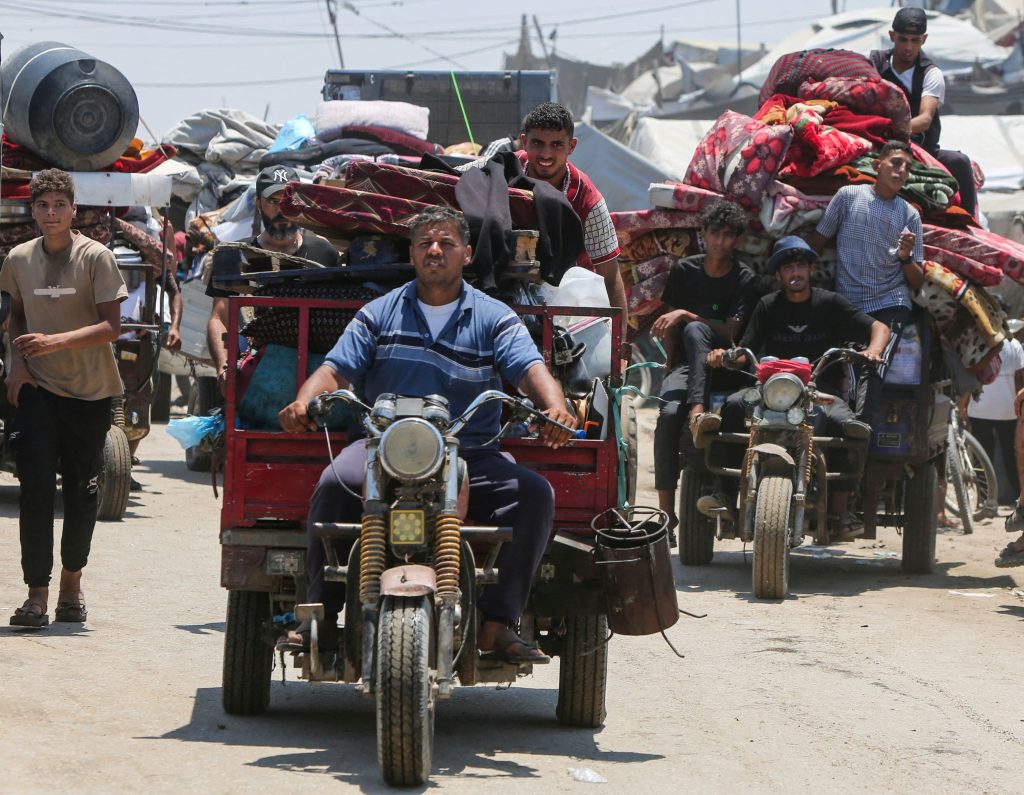Health
“Vaccines are effective and safe” – WHO

The World Health Organisation’s country representative to Nigeria, Dr. Walter Mulombo, on October 18, 2024, stated that vaccines are effective and harmless.
Reports states that Dr. Mulombo disclosed this during a two-day course training for journalists on capacity building in Abuja.
This training concentrated on improving knowledge of some global health issues and improving health reporting abilities.
He stated that WHO undergoes a thorough evaluation of a vaccine’s effectiveness prior to approving it.
Remember that the introduction of the malaria vaccine into routine immunization would soon begin in Nigeria.
In October 2023, the nation also included the Human Papilloma Virus single-dose vaccination to its regular immunization schedule.
“I want to say that vaccines are safe, and vaccines are effective.
“Before WHO gives the green light to distribute any vaccine, it goes through a very rigorous process by a body called the Strategic Advisory Group of Experts on Vaccines and Immunisation.
“They review all the evidence.
“The malaria vaccine that they have here is because that body created it.
“It was the same for HPV, like the others.
“If you need more information, we are the source of that information.
“If you need more evidence, we are the source of the evidence.
“So feel free, don’t be afraid to debunk misinformation.
“Access to universal vaccination is a human right.
“A mother dying while giving birth is a human rights violation because nobody should die as a result of giving birth.
“A child missing a vaccination is a human rights violation.
“Misinformation spread without verification is a human rights violation because we are preventing communities from getting access to the tools they need to survive.
“And by doing so, we contribute to the high maternal mortality ratio and child mortality ratio”, he added.
The WHO country official emphasized that Nigeria must go past pilot initiatives.
He pointed that the country should concentrate on providing extensive, high-quality healthcare services.
He urged communities and the government to work together to address the urgent issues confronting the health sector.
The WHO representative reiterated that the vaccines are effective and safe, as reported.
Human Papillomavirus (HPV) vaccine
Cervical, anal, oropharyngeal, penile, vulvar, and vaginal cancers, as well as genital warts, can all be prevented with the help of the human papillomavirus (HPV) vaccine.
The vaccine provides protection from disease-causing HPV types, specifically types 6, 11, 16, 18, 31, 33, 45, 52, and 58.
The Centers for Disease Control and Prevention (CDC) advises routine HPV immunization for those between the ages of 11 and 12.
However, according to reports, it can be administered as early as age 9.
Additionally, the vaccine is advised for all those who have not had all recommended vaccinations up until the age of 26.
In order to decide if vaccination is appropriate for them, adults between the ages of 27 and 45 may also talk about their risks with their medical team.
What is the required number of doses?
Depending on age, different doses are needed.
Individuals under the age of 15 can get two doses spaced 6–12 months apart, but those beyond 15 need three doses spaced 6 months apart.
Is the HPV vaccine safe?
Numerous studies have confirmed the vaccine to be safe, although modest side effects like discomfort, swelling, or redness at the injection site are frequent.
Malaria vaccine
Malaria vaccines have revolutionized the fight against this fatal illness.
The RTS, S, and R21 vaccinations are the two that the WHO recommends.
These vaccines are intended to protect children who live in regions with moderate to high transmission of P. falciparum malaria.
Key Benefits of Malaria Vaccines
– Reduced Malaria Cases: It has been demonstrated that both vaccinations cut the number of malaria cases by more than half in the first year following immunization.
– Reduced Hospitalizations: It has been shown that the RTS,S vaccination significantly lowers hospitalizations for severe malaria.
– Increased Access to Prevention: More than 90% of children now have greater access to at least one malaria prevention strategy, such as a malaria vaccine or an insecticide-treated net, thanks to the immunizations.
For Diaspora Digital Media Updates click on Whatsapp, or Telegram. For eyewitness accounts/ reports/ articles, write to: citizenreports@diasporadigitalmedia.com. Follow us on X (Fomerly Twitter) or Facebook











